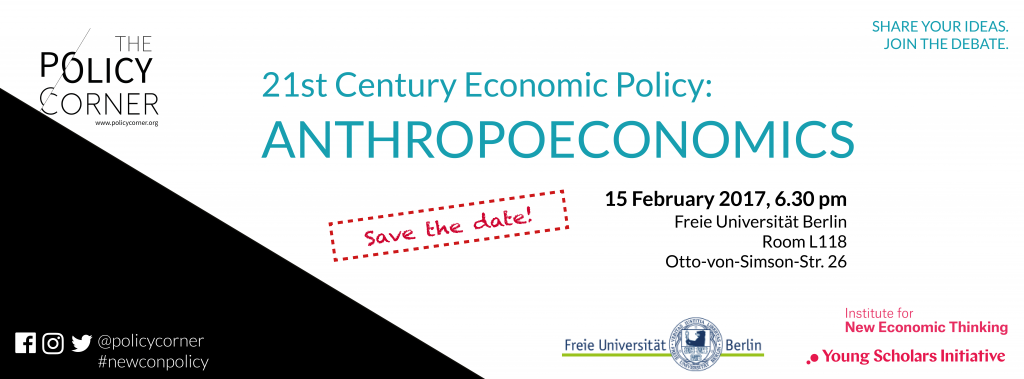Rethinking Economic Policy
2017 Global Essay Competition supported by the Institute for New Economic Thinking’s Young Scholars Initiative
Winning Essays
- Back to the Future? Populism and Spatial Inequality by George Bauer
- The Leontief Strategy of Trade Negotiation by Andrea Andrenelli
- Fossil Fuels – The Case for Ending Producer Subsidies by Tim Pfefferle
Essay Competition
In this writing competition we invited students and early career professionals of ages 30 years and under to submit an original article in which they identify an issue that calls for a new perspective in economic policy and outline an innovative solution.
The three winners were awarded cash prizes and were invited to Berlin to present their ideas at a discussion event with invited experts on 15 February 2018.
The essays were judged by an expert panel consisting of Professor Sergei Guriev (Sciences Po Paris School of International Affairs), Professor Vera Chiodi (New Sorbonne University), and Professor Philipp Lepenies (Free University of Berlin).
Award Ceremony

A recorded live stream of the award ceremony event is available on Facebook and the full panel discussion is available as a Podcast on our website and on iTunes.
The discussion featured first winner George Bauer, third winner Tim Pfefferle,
Anna Cavazzini, Advisor for Sustainable Development Goals at Bread for the World
Tyson Barker, Aspen Institute Germany, Program Director Digital Program
Prof. Rajshri Jayaraman, PhD, Associate Professor of Economics and Faculty Lead, European School of Management and Technology Berlin
Prof. Dr. Philipp Lepenies, Head of the Environmental Policy Research Center FFU and Visiting Professor for Comparative Politics, Freie Universität Berlin.
Over 60 guests discussed which economic approaches can help us to achieve a human-centered focus in policymaking, why it is important for economic policy to center on the human being, to what extent do standard economic approaches fail to do this and what current policy approaches exemplify this today.



